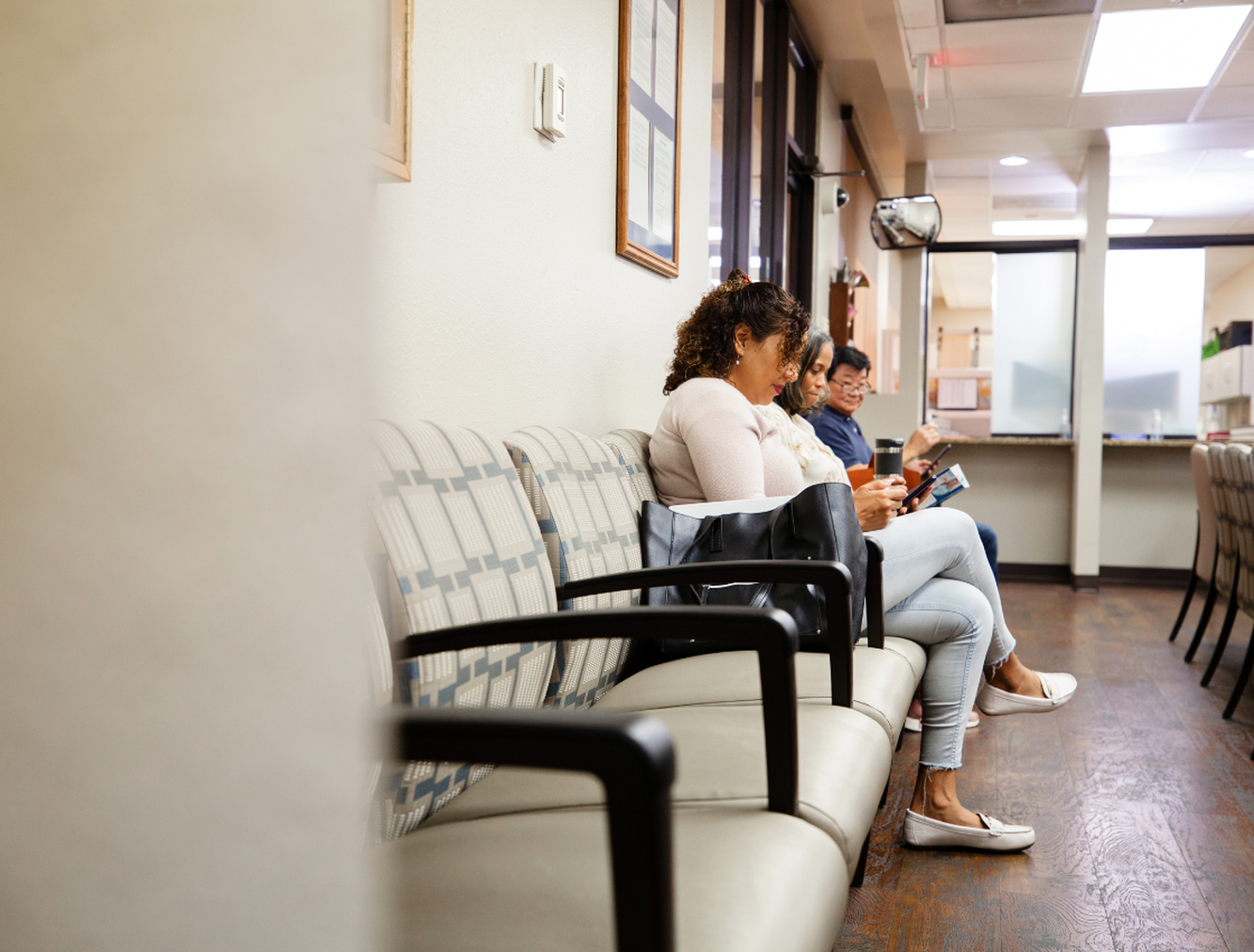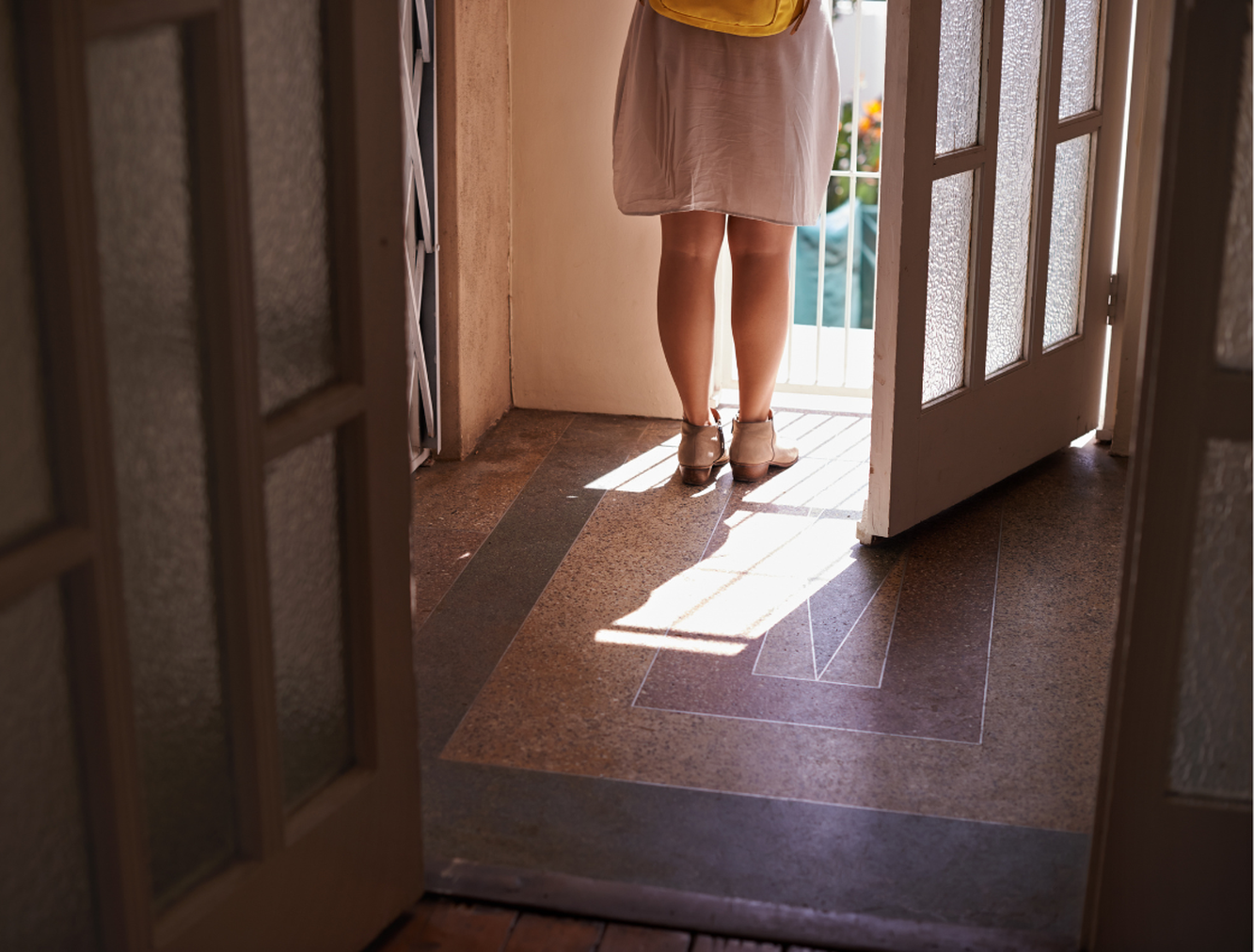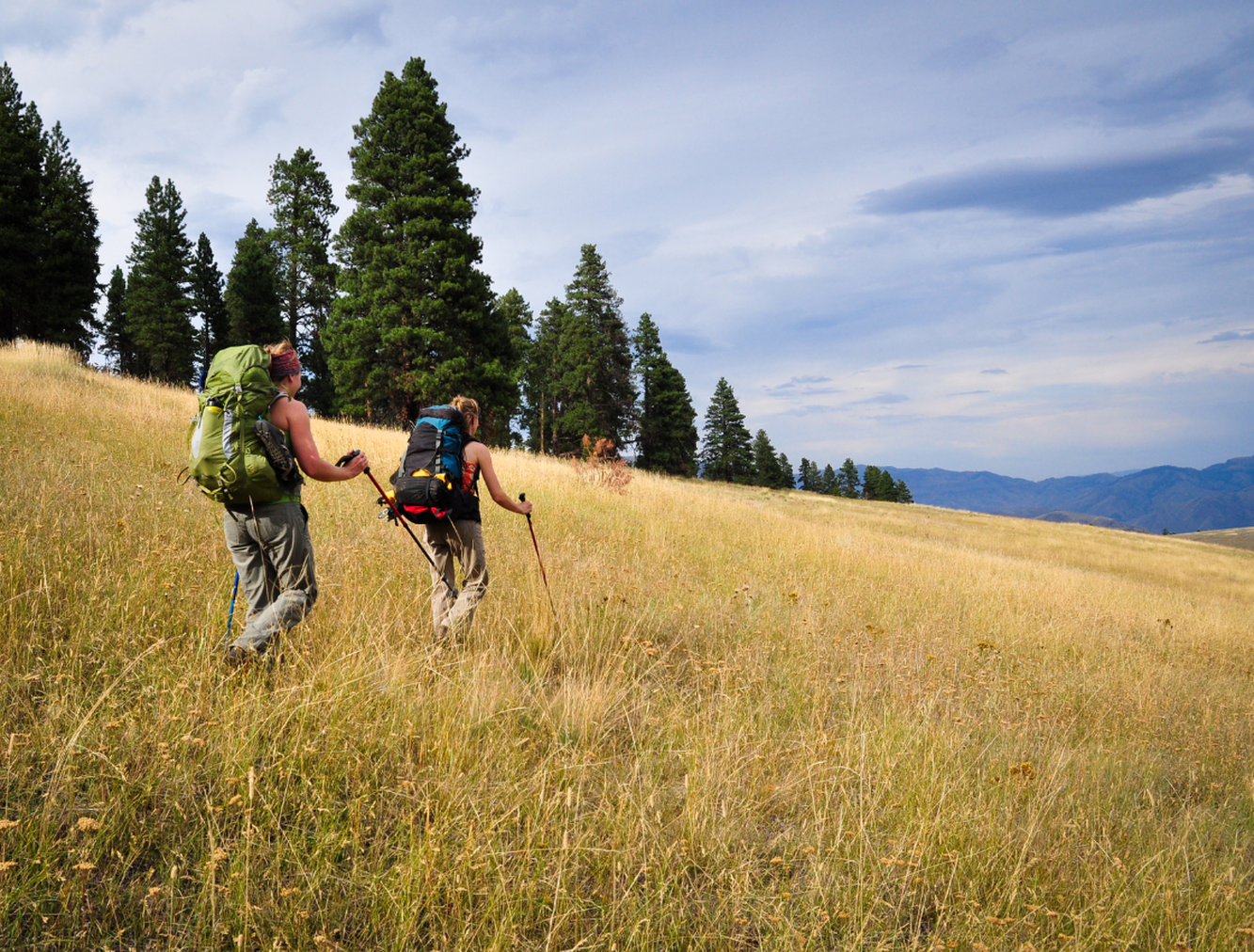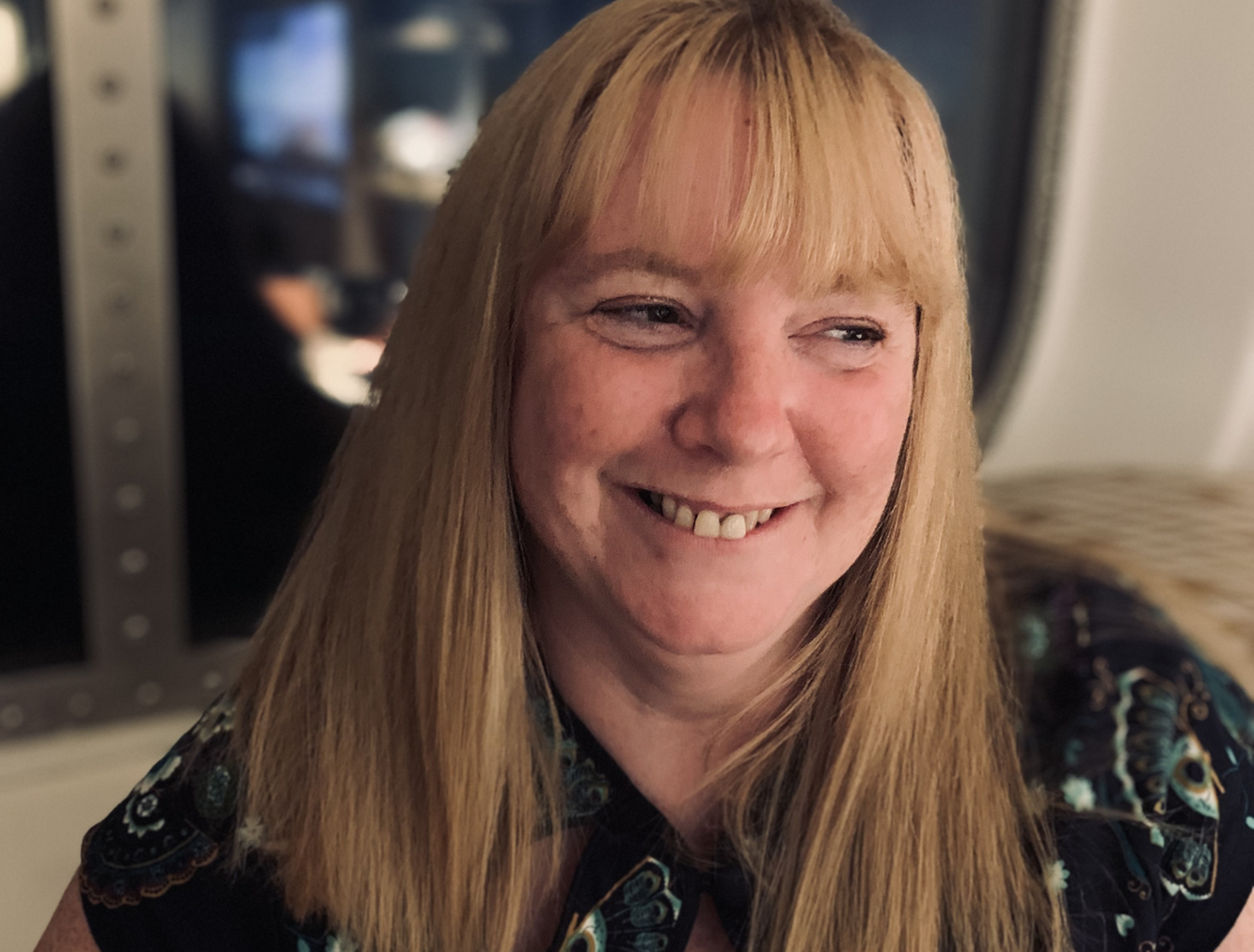Tricia Sail’s story began back in 2014 on a beachfront walk with her best friend, Cathie.
“I heard a popping sound. I didn’t feel anything but lost complete sight in my right eye, and it went completely black,”
explains Tricia. She dismissed it at first as just a bit of grit or sand that got stuck in there. But later that day, Tricia went to see Cathie’s husband, a pharmacist, who gave her eye drops and recommended a trip to the opticians. With it being a bank holiday weekend, many businesses were shut. That, followed by a busy week of work, meant Tricia wasn’t able to visit the opticians for another week and a half. Still unable to see out of her right eye, Tricia met an unsettling reaction from the optometrist.
“He went, “Oh, wow, sorry,” and sucked air. Like when you take your car to the garage, and you know it’s going to cost you a fortune.”
Panicked, Tricia asked if she was dying. Her optometrist said no, but he hadn’t seen anything like this before, and said she should get herself to the hospital.

After a brief trip to Exeter’s ophthalmology department, Tricia was referred to the specialists at Bristol Eye Hospital, who carried out all sorts of tests and eye exams. They told her it could be one of two things—white dot syndrome or chorioretinopathy. It turned out to be the latter.
The specialists at Bristol, and subsequently at Moorfields Eye Hospital, assured her that the condition—a rare form of uveitis—had never been known to develop in both eyes and was very slow to progress.
One reason for the experts’ hesitation in Tricia’s diagnosis is that chorioretinopathy almost never develops in anyone under the age of 70. Yet Tricia was just 38 years old when her right eye popped. With steroids, doctors were happily able to restore some of Tricia’s sight.
“I was still driving at this time; I was still doing everything. But six months later to the day, my left eye popped.”
It happened while she was driving down a country lane with her sister in the passenger seat. In the same fashion as her beach walk months before, she heard a dreaded pop in the back of her eye, and everything went dark.
“I literally had no vision at all. I slammed on the brakes. My sister nearly went through the windscreen.”

Her sister drove her at once to the hospital, where some of Tricia’s sight could be saved thanks to steroids and immunoglobulins. Feeling as though her entire world had ended, Tricia turned her back on it altogether. She resolved to never leave her home—and she didn’t, not for one whole year.
“I spent the year I was 39 sitting in the house. I was afraid to answer the door. I wouldn’t even answer the phone just in case somebody asked me to write something down, and I couldn’t read it back.”
She abandoned all hope of returning to her former life, which she’d spent walking marathons, working, and going out with her friends. Convinced that her life was over, Tricia did not expect just how much it was about to change when a stranger knocked on her door one day.
“It was a lovely lady who asked to come in. She spent an hour and a half with me, just sitting and having a cup of tea.”
It happened that this woman was from the Royal National Institute of Blind People (RNIB) and worked as a rehabilitation officer for the visually impaired. She asked Tricia if she’d be kind enough to show her where the local shop is. And for the first time in six months, Tricia got out of her pyjamas and stepped out of her front door.

“I held onto her leg like a little child that was so scared. We walked in the shop, and she said, “I need tomato ketchup and strawberry jam.” I just automatically picked them up, paid, went back out of the shop, and held on to her again.”
Even though Tricia had only lost about 25% of her eyesight, her fear led to her walking around as if she were completely blind. As they headed back up the street, Tricia turned to the lady and asked how she was getting home.
“She said, “I’ve got a driver. I’ve got no eyesight whatsoever.” So, it was literally the blind leading the blind,”
laughs Tricia. This kind stranger, who was born without sight, who works, who perseveres, who gets out of bed in the morning, brought Tricia back to life.
Tricia started venturing out. It began small—with just a trip into the village where she lived. Then, a bit further, into town to run errands. Each day she became more adventurous and more confident.
She signed up for walking marathons again and a particularly gruelling 100-kilometre non-stop walk, which took 36 long hours and lots of blisters to complete. Her best friend Cathie was beside her for the whole journey.
“I’d got my energy back; I’d started believing in myself a little bit. And I realised that I needed to do something different.”
Tricia had been watching BBC Race Across the World Series 2. At the end credits, there was a call for anyone interested to apply for their next series. So, Tricia did, and she put Cathie’s name down for good measure. They applied in 2019 and forgot all about their application to the show amongst the chaos of COVID-19 and lockdowns until one Saturday morning in April 2022. Tricia was sitting on Cathie’s bed when her phone rang, and it read private number. She answered. It was a member of the production team from Race Across the World saying Tricia and Cathie were in.
“The whole reason that I actually wanted to do it was to get out there and tell sight impaired people that you can still do stuff, even if you’re blind. It was also to show the full-sighted community that if we’re blind, don’t write us off!”
Tricia and Cathie had no idea where they’d be flying off to. Tricia simply told her employer that she was going to be on leave for several weeks but couldn’t tell them why.
In the end, it was a gruelling 8 weeks of relentless racing across Canada to various checkpoints with little to no money and no contact with family or friends the entire time. Tricia had no one but Cathie by her side.

“I would never have done it with anybody else. It was the maddest, hardest, most ridiculous, mind-numbing, brain-fogging thing I’ve ever done, but I have the most amazing, exciting, adrenaline-filled, wonderful memories ever.”
Huge spoiler incoming…
After those long weeks hitchhiking, Tricia and Cathie were the first pair to reach the final checkpoint, making them the winners of BBC Race Across the World Series 3.
Sadly, despite her triumph, upon returning to work, Tricia saw little change in people’s reactions to her sight condition. A mere two months on from her Canadian adventure, Tricia took off from the UK once again, heading west—this time landing in Peru. She set off on a five-day trek up the Inca Trail, where at the summit, she had an epiphany.
“People are telling me I can’t do anything because I’m blind. I’ve just raced across the world, and now I’ve walked up Machu Picchu.”

So right at the top of the mountain, she called her now-manager to ask for a job with the RNIB. And she’s worked there ever since.
Doctors believe that Tricia’s chorioretinopathy is genetic, although they don’t know for sure. The condition itself appears as small freckles on the back of the eye that are slowly merging together. And once they’ve fully merged, it will result in total blindness. Now, Tricia has less than 5% visibility in her right eye and 9% in her left eye. But she’s not afraid of going blind anymore.
“I used to be absolutely petrified that I’m going to lose my sight completely. Now it doesn’t bother me as much because I know that there’s support there.”
Sight-saving treatments have helped to stabilise her vision. Tricia got lucky a few years ago when she signed up to a clinical trial and was given the real medication instead of a placebo, which successfully prolonged her sight.
“If it wasn’t for that research, I wouldn’t have my eyesight because it would have deteriorated completely.”
Tricia encourages anyone in situations like hers to sign up for clinical trials, believing that it will make medications cheaper but also make others more aware of their conditions and thus medications easier to get hold of.
“There’s going to be so much more that can be done if people get involved in the research side of it.”
From that fateful beach walk back when she was 38, Tricia has since trekked thousands of miles, spanned countless countries and oceans, and met so many inspirational people on the way. Yet, the most difficult strides she ever had to take were the first few out of her own front door.
“It took little steps, but it absolutely changed my life. Now I’m not afraid.”


